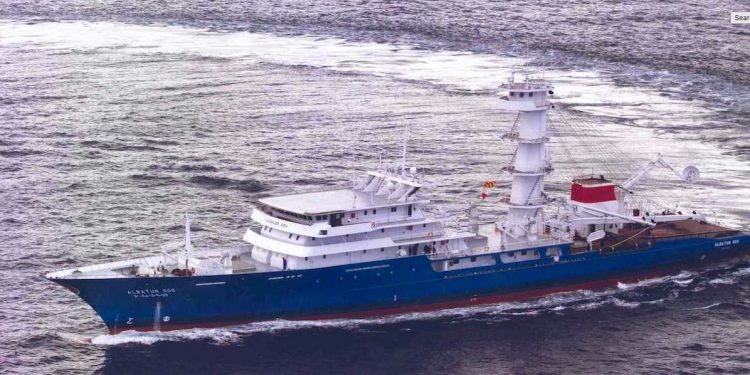The Spanish tuna fleet, represented by the Organisation of Associated Producers of Large Tuna Freezers (OPAGAC), has signed the Sustainable Ocean Principles, a framework for responsible business practices in the marine environment across all sectors and geographic regions. Its principles are part of the UN Global Compact, which OPAGAC joined in January 2019, making it the first Spanish fleet sector to do so.
In signing the Sustainable Ocean Principles, OPAGAC, which is a member of the UNGC Action Platform for Sustainable Ocean Business, renews its commitment to the health, governance, and sustainable use and development of oceans for today’s generations and those of the future, and it will be integrating significant ocean-related risks and opportunities into its corporate strategy, risk management, and reports.
The Sustainable Ocean Principles recognise the worldwide urgency and importance of healthy oceans and promote a range of measures for the wellbeing of the seas. They also set up a framework for the activity of businesses, which must, among other things, evaluate their impact on ocean health, consider sustainable business opportunities that help restore the oceans, take measures to avoid polluting the oceans, interact responsibly with regulatory authorities in matters concerning laws and regulations that concern the oceans, support the implementation of good practices in the industry and markets, respect the right to work and the rights of indigenous peoples in activities related with their business, share relevant scientific data to support research and map relevance to the ocean, and act transparently in all areas of their business.
In the spirit of continuous improvement, OPAGAC commits now to these Sustainable Ocean Principles in the belief that concerted action can safeguard the future of ocean-based industries while at the same time contributing to a healthy ocean. In doing so, OPAGAC continues to reach forward towards the UN’s Sustainable Development Goals (SDGs) for 2030.
OPAGAC is particularly involved in working towards Goals 8, 12, 14, 16 and 17, which respectively refer to decent work, inclusion, and growth, responsible production and consumption, sustainable use of the oceans and their resources and sustainable fisheries management, combating corruption and bribery, and partnership for the goals.
The Spanish tuna fleet, which is responsible for 8% of the world’s tropical tuna catch, aligns itself with Goals 8 and 12 through its Responsibly Fished Tuna standard, a world pacesetter in good fishing practice, because it is the only standard that voluntarily envisions not only legal requirements, but also social and labour conditions on board fishing vessels pursuant to ILO Convention 188.
In line with SDG 14, OPAGAC also promotes the long-term sustainable management of tropical tuna stocks in all three of the oceans it fishes and the reduction of its business’s environmental impact on the marine ecosystem through the Fishery Improvement Project (FIP), which OPAGAC runs in cooperation with the WWF.
By signing the Sustainable Ocean Principles, OPAGAC continues to boost the Transparent Tuna Initiative, which has been in effect since 2010 promoting lawful management of the fishing agreements between European fleets and third countries, and the 2014 protocol between the Spanish Fishing Confederation (CEPESCA) and the Secretary-General of Fisheries for supervision of the unloading of foreign vessels at Spanish ports.









